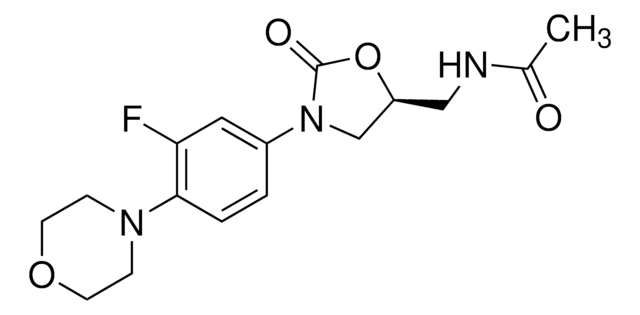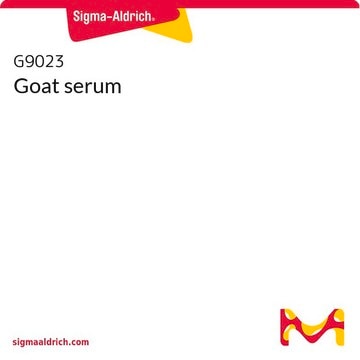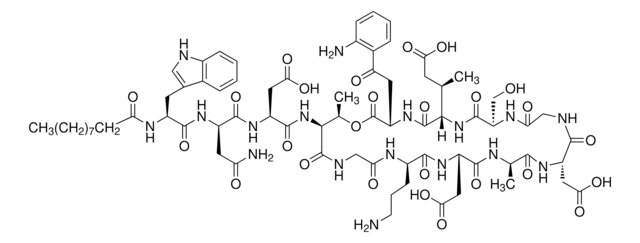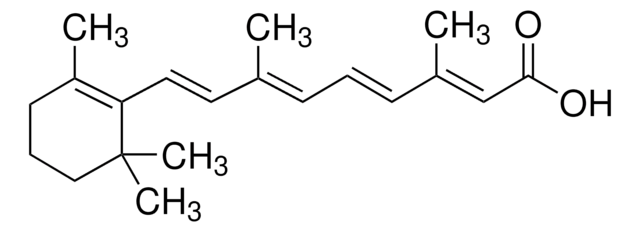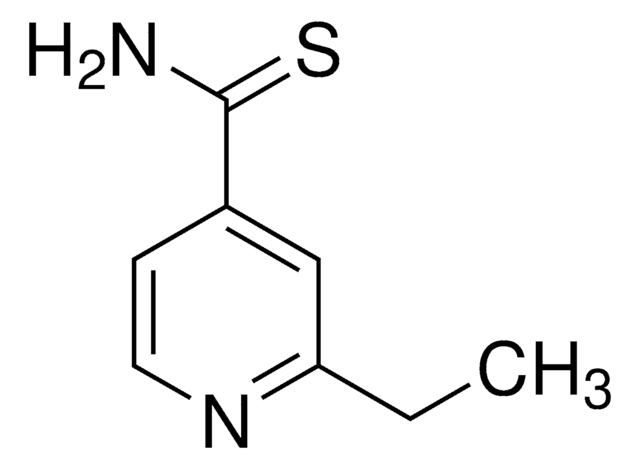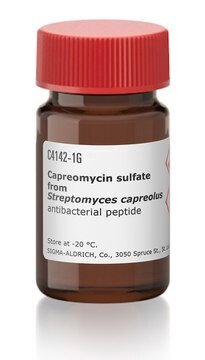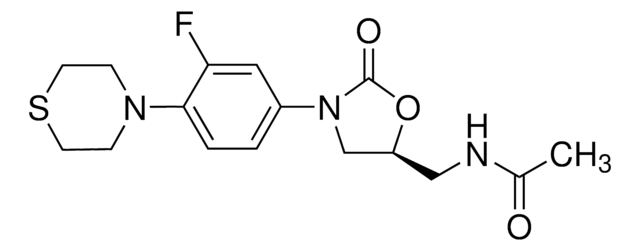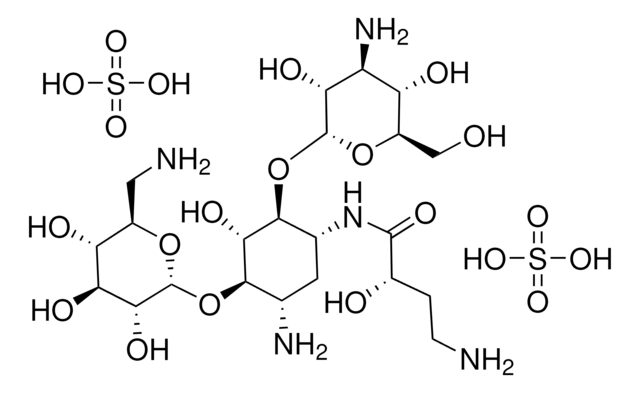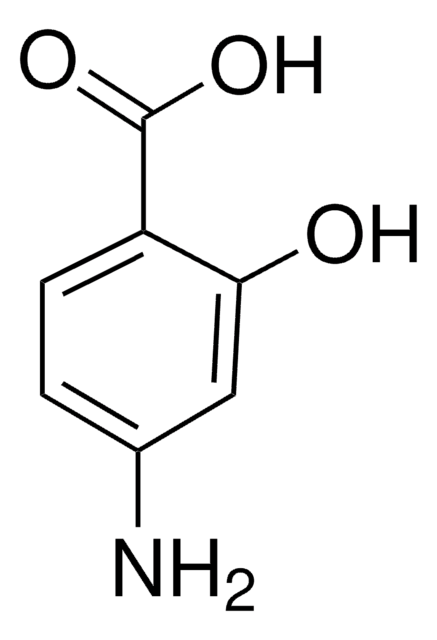PZ0014
Linezolid
≥98% (HPLC), powder, bacterial mRNA translation inhibitor
Synonym(s):
N-[[(5S)-3-[3-Fluoro-4-(4-morpholinyl)phenyl]-2-oxo-5-oxazolidinyl]methyl]acetamide, PNU-100766, U-100766
About This Item
Recommended Products
product name
Linezolid, ≥98% (HPLC)
Quality Level
Assay
≥98% (HPLC)
form
powder
color
white to off-white
solubility
DMSO: >20 mg/mL
storage temp.
room temp
SMILES string
CC(=O)NC[C@H]1CN(C(=O)O1)c2ccc(N3CCOCC3)c(F)c2
InChI
1S/C16H20FN3O4/c1-11(21)18-9-13-10-20(16(22)24-13)12-2-3-15(14(17)8-12)19-4-6-23-7-5-19/h2-3,8,13H,4-7,9-10H2,1H3,(H,18,21)/t13-/m0/s1
InChI key
TYZROVQLWOKYKF-ZDUSSCGKSA-N
Looking for similar products? Visit Product Comparison Guide
General description
Application
Biochem/physiol Actions
Signal Word
Danger
Hazard Statements
Precautionary Statements
Hazard Classifications
STOT RE 1 Oral
Target Organs
Bone
WGK
WGK 3
Flash Point(F)
Not applicable
Flash Point(C)
Not applicable
Certificates of Analysis (COA)
Search for Certificates of Analysis (COA) by entering the products Lot/Batch Number. Lot and Batch Numbers can be found on a product’s label following the words ‘Lot’ or ‘Batch’.
Already Own This Product?
Find documentation for the products that you have recently purchased in the Document Library.
Customers Also Viewed
Related Content
Interrogation of protein pathways is a foundational part of drug discovery research and drug development. Explore more about protein pathway analysis, including chemical library screening, investigating protein and enzyme activity, and modulating protein pathways by using small molecules.
We offer agonists, antagonists, modulators and other bioactive small molecules for immune system signaling target identification and validation, as well as a variety of antibiotics, antivirals, and antifungals.
Our team of scientists has experience in all areas of research including Life Science, Material Science, Chemical Synthesis, Chromatography, Analytical and many others.
Contact Technical Service
